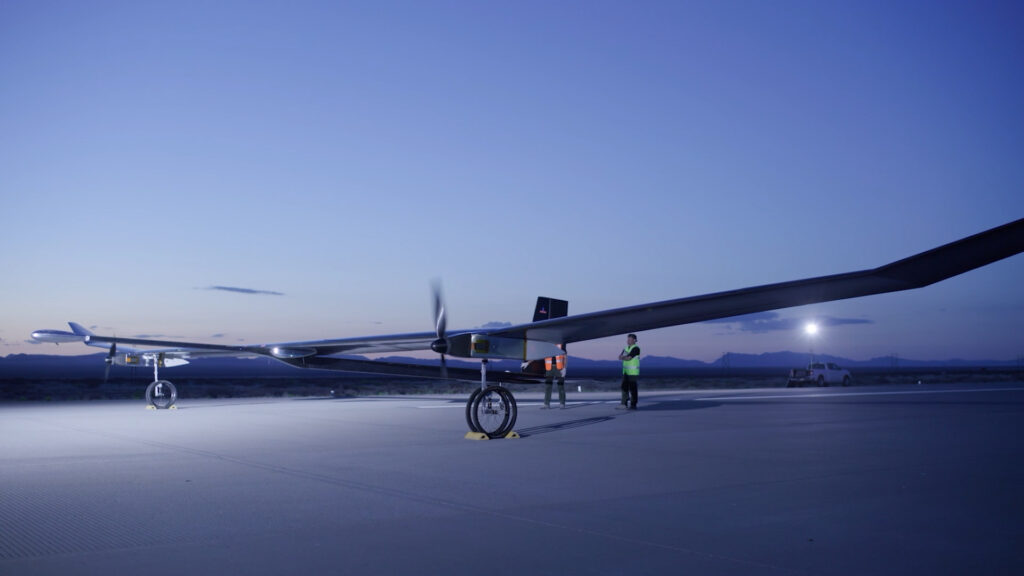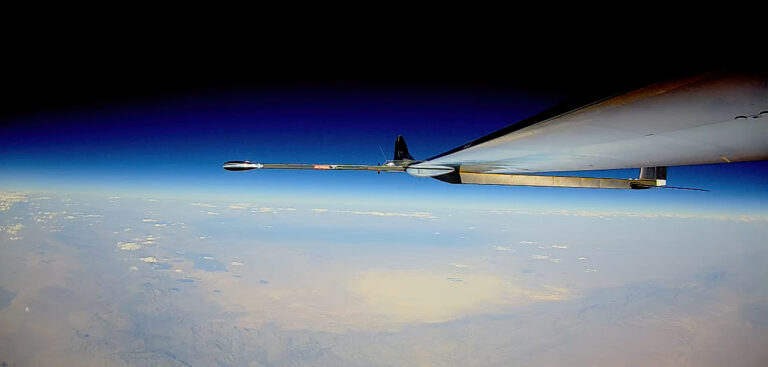Met Office scientists and meteorologists have supported the successful flight of BAE Systems Prismatic’s PHASA-35 high-altitude Uncrewed Air System. The PHASA-35 platform is designed to provide a persistent, stable platform for monitoring, surveillance, disaster relief and communications such as providing 5G.
It is ultra-lightweight at just 150kg and has the same 35m wingspan as a Boeing 737. Using solar panels along its wings, the aircraft is designed to stay in the air for months at a time at altitudes of 50,000ft-65,000ft.
With such a lightweight airframe, forecasting the right conditions for launch, climb, cruise and landing is vital. Met Office experts have provided forecast model data and scientific analysis to provide the best possible information and support all the way through to the top of the atmosphere.
The Met Office team has also provided a visualization capability, working alongside partners IBL, so that weather information can be fully integrated into the BAE Systems Prismatic mission-planning process. The Met Office College will also be providing an aviation meteorology training package for the PHASA-35 team.
Once the aircraft enters the stratosphere and is at its cruising altitude, it is no longer subject to the normal weather we experience within Earth’s lower atmosphere. But that doesn’t mean the end of Met Office support.
There is a delicate balance between flight optimization, avoiding the weather within the troposphere and remaining in the stratosphere, which can vary in height. To enhance efficiency and ensure mission success, Met Office meteorologists and forecast tools were able to provide detailed information on this boundary.
The expertise of Met Office science and technical specialists is also helping the team understand where and when the platform could be used around the world within the operating boundaries for future test and operational flights.
Wayne Elliott, head of defense at the Met Office, said, “I’m thrilled that the first high-altitude flight has been a success and that the Met Office has been able to support such an important and innovative project.”
Dave Corfield, CEO of BAE Systems’ Prismatic, said, “Being able to accurately forecast the weather conditions for the ascent, cruise and descent phases of flight were critical to our mission success. The expertise and support we received from the Met Office in the months leading up to, and during the flight, was outstanding.”




